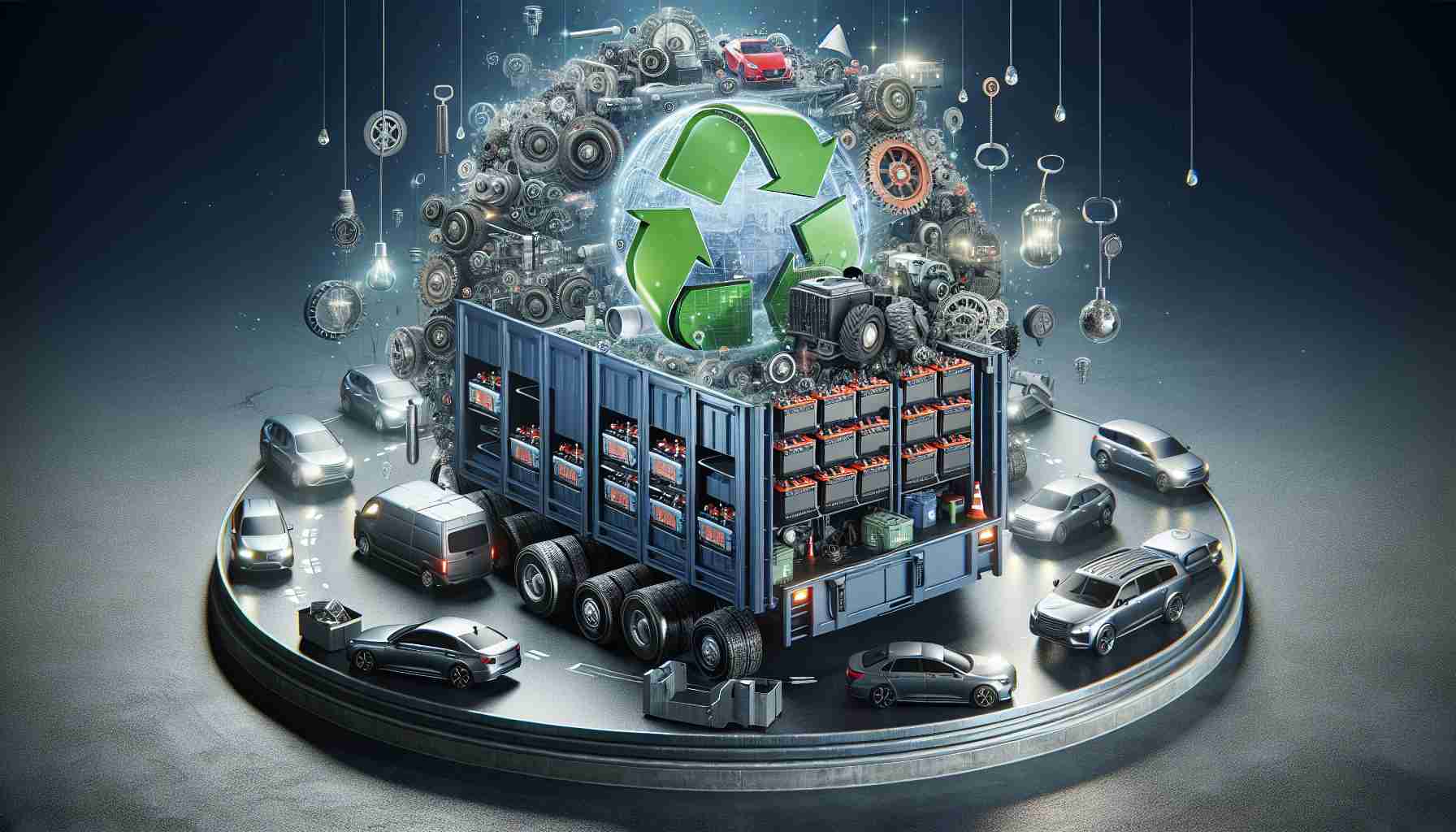BMW Group is embarking on an ambitious journey towards sustainability. In a groundbreaking move, the automaker is investing €10 million (approximately $10.5 million) to establish a state-of-the-art battery recycling center in Bavaria, Germany. This facility, known as the Cell Recycling Competence Center (CRCC), aims to innovate the recycling process for battery cells.
The CRCC will specialize in what BMW is dubbing “direct recycling.” This approach allows for the efficient mechanical breakdown of both residual materials from battery production and entire battery cells, extracting valuable components. This initiative builds upon BMW’s existing knowledge and experience developed at its facilities in Munich and Parsdorf.
As noted by the company’s senior vice president of battery production, the new center is set to enhance BMW’s ability to recycle significant quantities of battery cell materials each year, targeting mid-double-digit tons. The overarching goal is to create a closed-loop system for battery cells, where materials recycled at the CRCC will feed directly back into the production of new battery cells.
This innovative method not only promotes environmental sustainability but also aims to reduce production costs for BMW’s battery cell operations. With this investment, BMW is taking a significant step toward a more circular economy in the automotive industry, ensuring both efficiency and ecological responsibility in battery production and recycling.
BMW’s Bold Eco-Friendly Initiative: A Game Changer in Battery Recycling
### BMW Group’s Commitment to Sustainability
In an effort to revolutionize the sustainability landscape within the automotive industry, BMW Group has announced a significant investment of €10 million (approximately $10.5 million) towards the creation of its advanced battery recycling facility, the Cell Recycling Competence Center (CRCC) in Bavaria, Germany. This strategic move not only underlines BMW’s commitment to environmental stewardship but also positions the company as a frontrunner in innovative recycling technologies.
### Features of the Cell Recycling Competence Center (CRCC)
The CRCC is set to focus on “direct recycling,” an advanced process that enhances the efficiency of recovering valuable materials from battery cells and production waste. This method allows for the mechanical breakdown of entire battery cells and residual materials, thus minimizing waste and maximizing resource recovery. The facility will implement cutting-edge technologies that align with BMW’s sustainability ethos, ensuring a minimal environmental footprint.
### Use Cases and Applications
The core purpose of the CRCC is to recycle significant quantities of battery cell materials annually. The senior vice president of battery production has indicated that the center aims to handle mid-double-digit tons of materials each year. This process not only supports BMW’s battery production but also contributes to a broader circular economy, reclaiming materials that can be reused in new battery cell manufacturing.
### Pros and Cons of Battery Recycling
#### Pros:
– **Environmental Sustainability:** Reduces waste and reliance on raw materials.
– **Cost Efficiency:** Lower production costs due to recovered materials.
– **Resource Availability:** Ensures a steady supply of critical materials needed for battery production.
#### Cons:
– **Initial Investment Costs:** Significant upfront investment required for facility setup.
– **Technology Development:** Continuous need for innovation to improve recycling efficiency.
– **Regulatory Challenges:** Compliance with environmental regulations can be complex and resource-intensive.
### Innovations in Battery Recycling
The BMW CRCC represents a significant innovation in battery recycling. By focusing on direct recycling, BMW aims to create a streamlined process that integrates seamlessly with its production line, thus reducing the environmental impact associated with battery manufacturing. The advancements made at the CRCC could potentially influence industry-wide practices, pushing other automakers to adopt similar recycling initiatives.
### Security and Sustainability Efforts
In line with its sustainability strategy, BMW is not only focusing on recycling but also on ensuring that the recycling processes are secure and environmentally friendly. The CRCC will adhere to strict environmental standards to minimize risks associated with the recycling process, ensuring that hazardous materials are handled safely.
### Future Trends in Battery Production and Recycling
Looking ahead, the automotive industry is projected to see a significant shift towards sustainable practices. With increasing demand for electric vehicles (EVs), the focus on battery recycling is expected to grow. BMW’s CRCC is well-positioned to lead these trends, marking a substantial move towards more sustainable automotive manufacturing processes.
### Pricing and Market Analysis
As the demand for electric vehicles rises, the economic viability of battery recycling will become increasingly critical. Companies similar to BMW that invest in recycling technologies are likely to see long-term savings. The initial investment can be viewed as a strategic move to secure a competitive edge in the evolving EV market.
For more insights into how automotive companies are integrating sustainable practices, visit BMW Group.
